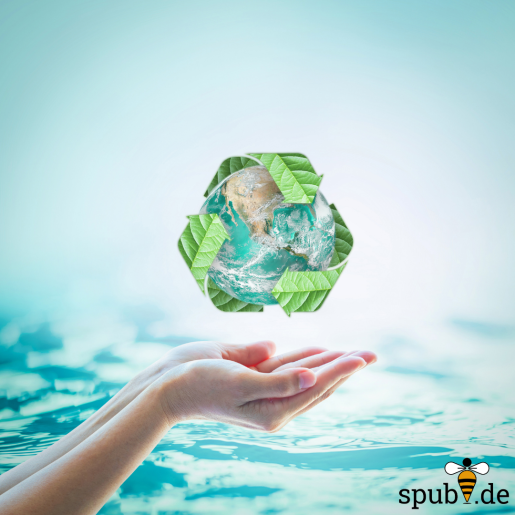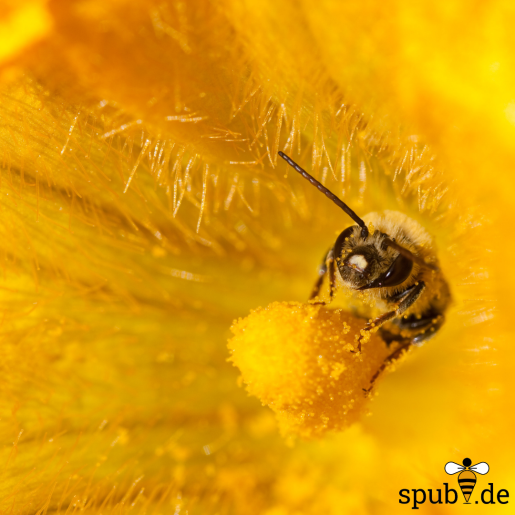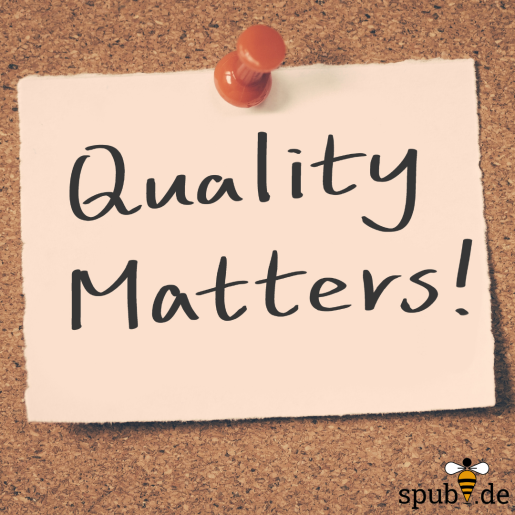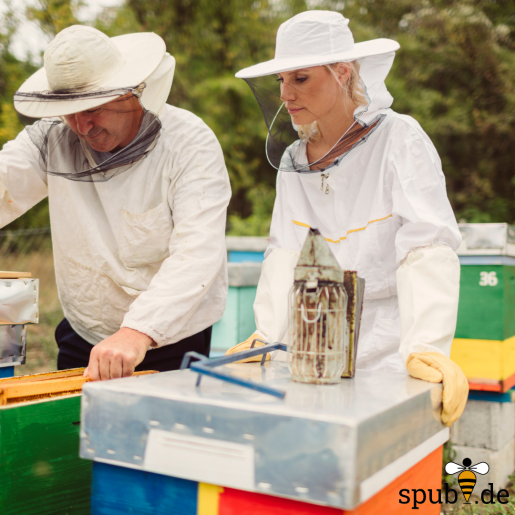Spubi's 5 - reasons to buy honey directly from the beekeeper
Globalization has many very good sides. We all experience this every day. Nevertheless, it can't hurt to look for treasures on our own doorstep every now and then. Proximity and direct connection has some advantages, especially when it comes to our consumption. Today we would like to give you 5 good reasons to buy your honey from a local beekeeper. Honey is great, most of us love it. Honey is a natural product that can be produced almost worldwide. Often, especially across national borders, the taste and quality of honeys differ. Why it can therefore be useful to prefer domestic honey, we illuminate in today's episode of Spubi's 5. We have chosen the format so that the tip is briefly explained and described, if necessary, additional information is offered via external web links. Function and content of the linked pages are the responsibility of their operators. As always, if you notice something here, feel free to contact us! Enough prefaces, let's get to the topic:
Sustainability
Directly at the beginning a particularly strong argument for the domestic honey of the beekeeper: Honey as a natural product can be produced (in sufficient quantity) in the own country. The purchase of honey from abroad is currently only necessary because the demand for honey in Germany clearly exceeds the supply. Exciting is the following evaluation from EU view (german only) - EU far clearly more honey is imported from China, America, Mexico u.A. into the EU, than exported. This is justified in the article with an also exciting and often applicable fact: Import honey costs about half of the EU honey. Within the EU the assumption is close that German honey contains with the highest production costs of the EU states. Unfortunately, this is at the expense of sustainability. We import a natural product, which we could produce in our own country (exceptions like Manuka honey). The honey travels partly across continents, is shipped and therefore faces an increased CO2 footprint. Regional (German) honey travels much shorter distances. Its CO2 footprint is therefore correspondingly smaller.

Pollination
Even if it is not the primary task of a honey bee, it also provides a not negligible pollination service. Fruit farmers in particular appreciate the additional yield that the establishment of a bee colony on the plantation / in the orchard brings. Buying regional products supports German beekeepers in keeping bees. With the number of honey bee colonies in Germany an increase of the pollination achievement and thus e.g. the fruit yield can be determined. This above all, since the rescue of other pollinators such as wild bees, butterflies, bumblebees and beetles, unfortunately only as sluggishly progressing can be called. Here, too, beekeepers can help with their expertise to create habitats for wild pollinator.

Quality
It may be surprising - it is also honey - but believe us: you can taste a clear difference between traditional beekeeper-craft honey and the industrial mixed honey from "EU and non-EU" countries. Why is that? There is a very strict "honey regulation" in Germany. This states in detail what honey is and accordingly what quality characteristics a product must have that is called honey. Without going into too much detail at this point: In other countries (non-EU, partly also EU) it can be that the honey is subject to lower, or no quality requirements in the production. The end product is a labeled honey (mixed product of EU and non-EU honey), which can hardly be compared with a 100% beekeeper honey according to German honey regulations. Have you listened to the podcast episode with Grischa? (german only) In the self-experiment, a kind of "honey tasting" the differences were perceptible. Try it out for yourself.

Direct contact
Questions about honey? How is beekeeping done, what goes into the jar, what is the philosophy of beekeeping? All these questions are unfortunately mostly lost in the course of industrialized honey production. Buying honey regionally often allows you to ask your questions directly to the beekeeper. We think honey tastes even better if you know exactly where it comes from and if you have one or more of the bees in your own garden. If you do not (yet) have direct contact with a beekeeper, we recommend our search.

Effect
Honey is not just sugar. Real beekeeper honey also contains pollen, enzymes and much more. These can strengthen the immune system and, for example, also mitigate hay fever (desensitize). In addition, the honey in natural medicine is attributed healing effects for sore throats and coughs. Industrial production often filters the honey to these other components so that the honey does not crystallize. Additional heating for easier bottling destroys the secondary ingredients. What remains is more sugar than natural product. An interesting study from Austria on the subject can be found here (only german version available). Also pollutants can pollute the honey more in foreign countries than in ours. Unfortunately, there are very large differences from country to country, depending on how intensively agriculture and industry are operated. Transparency is often lost here due to the generalization "EU and non-EU". Even though we are personally pleased that this labeling is now mandatory.

We hope that you enjoyed this (admittedly somewhat subjective) plea for beekeeper honey. Write us, which Spubi's 5 you would like to read more. We look forward to exchanging ideas with you, your personal tips and experiences. Feel free to write us on Facebook or Instagram, or directly. Let's do good together! Your Spubis





